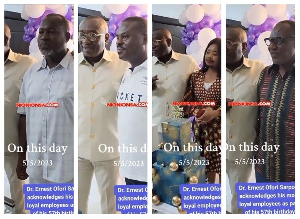Business News of Tuesday, 10 August 2010
Source: Business Guide
Government to resurrect VALCO
Government is planning to revive the Volta Aluminum Company (VALCO) about the same time that the country is expected to produce oil in commercial quantities.
Presenting its report to the Minster of Energy recently, the committee set up by Government to examine the probability of restoring VALCO, said Ghana’s power generation current level of 2000 Megawatts (Mw) could be managed with the resuscitation of VALCO.
In spite of the current unsatisfactory power supply in the country, Government is still keen on resurrecting the company.
Ghana expects to move onto half power generation somewhere around 5000Mw by 2015.
But Government believes that the production of crude oil in commercial quantities could prevent any energy mess-up in future.
VALCO will operate on two of its pots, BUSINESS GUIDE has learnt.
With the activation of the crude oil and gas production commercially, a number of power project are expected to spring up and these could culminate in the significant increase in power supply soon, Government emphasizes.
VALCO, one of Africa’s largest smelters, was shut down two years ago following power supply constraints.
It was established by KAISER Aluminum (USA) and the Government of Ghana to produce aluminum products for processing about 42 years ago but Government later acquired 90 percent shares under a joint venture agreement with RUSAL, a Russian company.
Though stakeholders in the company have held discussions consequently to plot the technical details of bringing the company on-stream, industry pundits have said the current tariff regime poses a threat to the survival of the company.
But Government sources contacted by the Business Guide maintained that the oil and gas activity would ensure the development of renewable energy in Ghana.
The sources also hinted that electricity from oil and wind could be generated to achieve about 10 percent of renewable energy by 2020.










